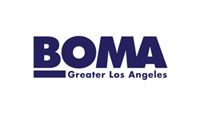Are you prepared to safeguard your business against unexpected losses? Have you considered the financial risks of natural disasters, theft, or accidents? Protecting your investments is critical, and commercial property insurance offers a reliable way to secure your assets. Knowing what to expect is vital whether you manage a small boutique or oversee operations in a large warehouse. Experienced Los Angeles commercial property management companies always encourage people to explore this topic and eventually buy insurance. But first, let’s explore what makes a strong insurance policy essential.
What is Commercial Property Insurance?
Commercial property insurance protects your business assets, including buildings, equipment, inventory, and other valuables. This coverage ensures you are not left financially vulnerable after disasters, theft, or vandalism. Imagine the cost of replacing expensive machinery or restocking shelves after a fire. These risks are real, but the right policy steps in to cover such losses.
Beyond immediate concerns, policies often extend to indirect risks like business interruption. This means you can recover lost income if your operations halt after an insured event. In areas like Orange County, where businesses often rely on high-value equipment, having a robust insurance policy brings peace of mind.
Types of Coverage Included
Understanding the components of commercial property insurance helps you tailor it to your business needs. A well-rounded policy typically includes:
- Building Coverage: This covers physical structures you own or lease, ensuring repairs or replacements after damage.
- Contents Coverage: It protects items inside your property, such as computers, furniture, and stock. For example, retail stores often rely on this feature to secure inventory.
- Loss of Income: If a covered event halts your operations, this component compensates for lost revenue, helping your business stay afloat.
- Natural Disasters and Perils: Events like fires or storms may require specific endorsements for comprehensive coverage. A business on the coast may prioritize flood insurance, while inland areas focus on fire protection.
Each feature is vital, but not all businesses require the same level of coverage. Customization ensures every dollar spent aligns with your needs.
Benefits of Having This Kind Of Insurance
Why invest in commercial property insurance? It offers multiple benefits that keep your business protected and functional.
- Financial Security: An insured loss becomes manageable, preventing financial strain.
- Business Continuity: Coverage ensures quick recovery after damages, reducing downtime.
- Legal Compliance: Many landlords or financial institutions require proof of insurance, especially for loans or leases.
In competitive markets, these advantages set prepared businesses apart.
Key Factors to Consider When Choosing a Policy
Selecting the right policy involves assessing your risks, understanding your needs, and choosing wisely. Here are some factors to consider:
- Location-Specific Risks: Does your area face unique challenges, like earthquakes or floods? Businesses in LA zones often prioritize earthquake coverage due to fault line proximity.
- Industry-Specific Needs: A restaurant’s insurance needs differ from a tech company’s. Knowing what assets you need to protect helps narrow your focus.
- Policy Limits and Deductibles: Finding the balance between adequate coverage and manageable premiums matters. A high deductible reduces premiums but requires larger upfront payments after a claim.
- Managing Properties from a Distance: If you oversee multiple properties remotely, ensure your insurer supports this scenario. Policies catering to managing commercial properties from a distance reduce operational stress and ensure no location is overlooked.
Common Exclusions and Misunderstandings
Many people assume their policy covers every possible risk. Unfortunately, this is not always true. Understanding exclusions helps you avoid surprises after filing a claim. Policies often exclude damages from earthquakes, floods, or certain types of theft. If your business is in Orange County, for instance, consider adding earthquake insurance to protect against tremors.
Misunderstandings about policy terms also create problems. Some assume commercial property insurance covers employee theft or routine maintenance, but these usually require separate policies. Without clarity, you may face financial gaps during critical times. Have you reviewed your policy recently to confirm it covers your specific needs? Asking the right questions could save you significant stress.
Tips for Reducing Insurance Premiums
Reducing premiums does not mean compromising coverage. Instead, it involves practical steps that make your business less risky for insurers.
- Upgrade Security Measures: Install cameras, alarms, and secure locks. These lower the chance of theft and make insurers offer discounts.
- Bundle Insurance Policies: Many insurers provide lower premiums if you combine property insurance with liability or auto coverage.
- Assess Coverage Periodically: As your business grows, review your policy to ensure you are not paying for unnecessary coverage.
Each of these actions brings real savings without reducing your protection. With careful planning, you can balance costs and peace of mind.
How Relocating Your Business Affects Insurance Coverage
Many businesses in Los Angeles relocate often. Companies move to grow, reach more customers, or cut costs. For instance, those moving from Orange County might seek better market access or reduced expenses. These moves affect risks that change your commercial property insurance needs.
A new location introduces new challenges. Local weather, crime, or building codes influence the coverage you need. A property in one area might require earthquake insurance, while another demands flood protection. Moving also raises questions about covering items in transit. To reduce risks, trust the task to commercial movers who carefully handle business equipment. This step ensures fewer damages and simplifies insurance claims.
Relocation brings opportunity but demands preparation. Have you reviewed your policy for gaps after your move?
What You Need to Know About Filing a Claim
After an incident, filing a claim can seem stressful. However, preparation makes the process faster. Begin by documenting damages with photos and detailed notes. Insurers also require receipts and inventory lists to validate your claim.
Contact your insurer immediately and follow their instructions. Submit all necessary forms within the given timeline. Staying proactive ensures a smooth experience. Addressing legal issues with your property before filing could prevent delays. Have you ensured all documents are up-to-date?
Emerging Trends in Commercial Property Insurance
The landscape of commercial property insurance evolves constantly. Technology plays a major role in improving services and identifying risks. For example, artificial intelligence allows insurers to assess properties more accurately. Businesses managing risks with real-time data gain tailored premiums that reflect actual conditions.
Environmental concerns also affect the insurance market. With unpredictable weather patterns, policies now adapt to cover changing risks like flooding or severe storms. Have you evaluated how modern trends could improve your current policy? Businesses that stay informed benefit from cutting-edge solutions.
Insurance Is A Must
Have you thought about the value of a policy tailored to your business? Commercial property insurance protects not just your assets but also your financial future. From avoiding exclusions to leveraging trends, the right strategy keeps you prepared for the unexpected. Whether you operate in Orange County or manage a property remotely, understanding your policy ensures the best coverage. Ask yourself: Does your current policy truly meet your needs?



